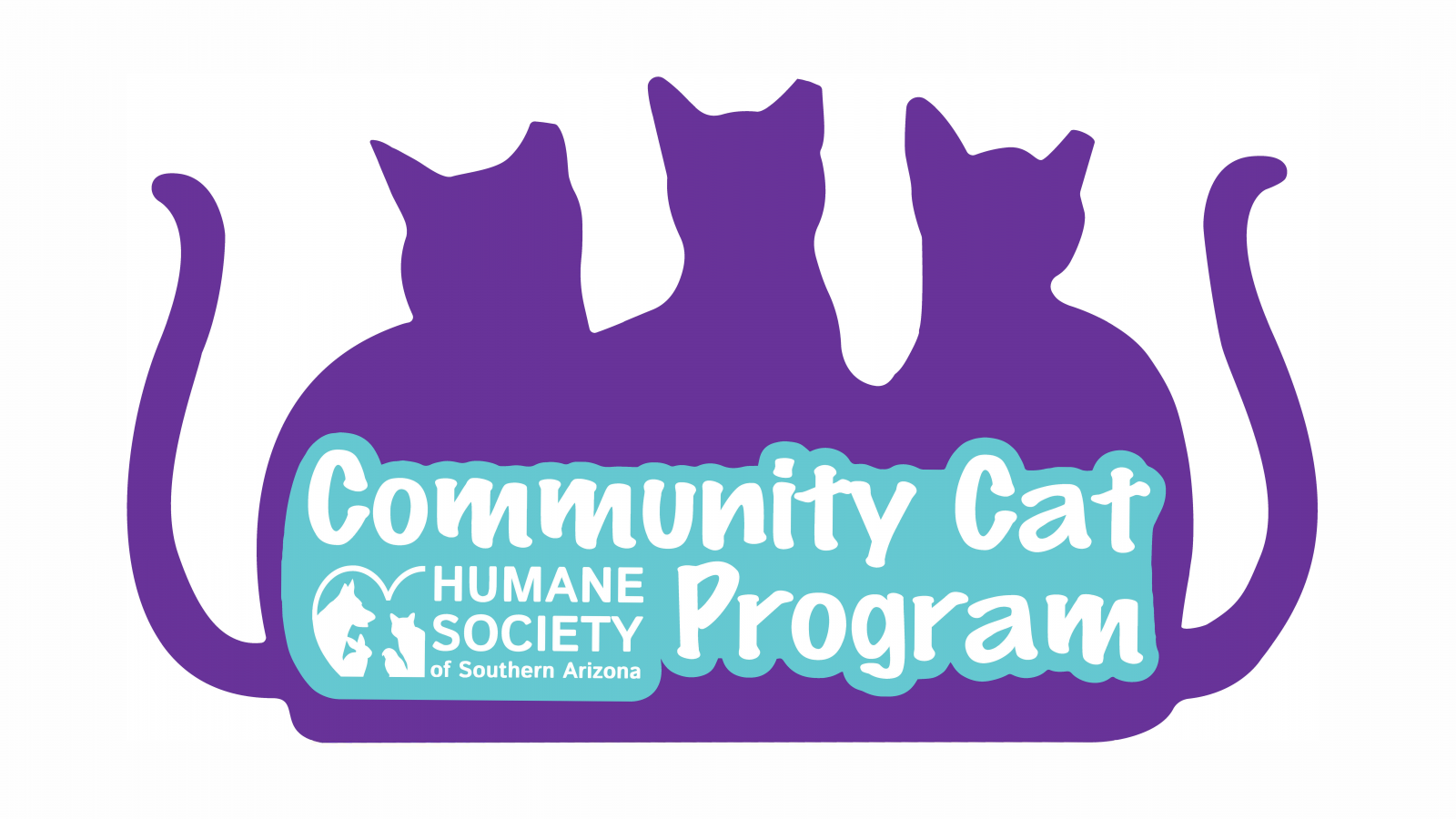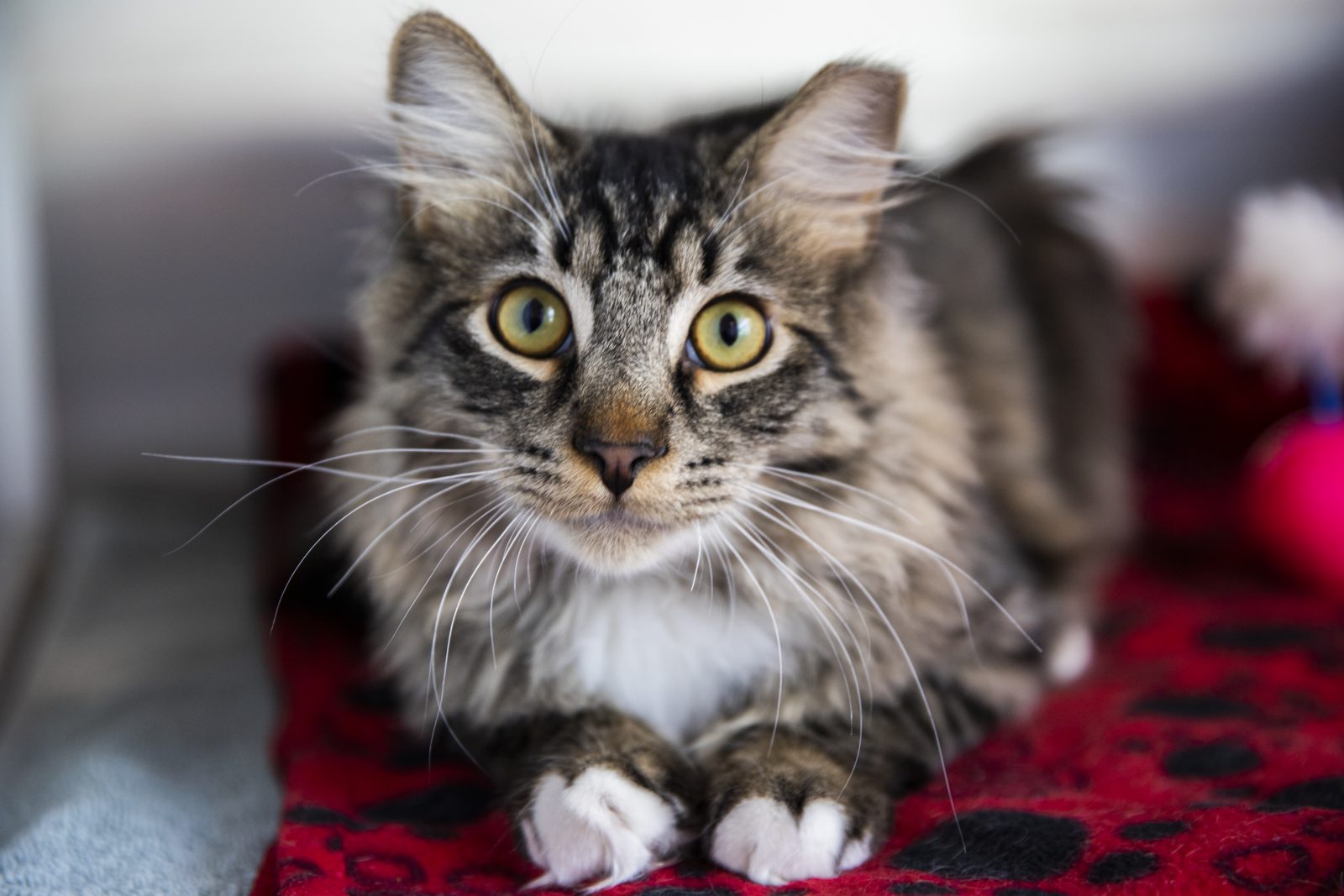The Community Cat Program
The Humane Society of Southern Arizona’s Community Cat Program is dedicated to reducing cat overpopulation and improving the lives of outdoor cats through the practice of trap, neuter, return (TNR).
Outdoor cats, or community cats, are caught using humane traps, and brought to the Humane Society of Southern Arizona’s Low-Cost Spay/Neuter Clinic where they are evaluated, spayed/neutered, ear-tipped, and vaccinated. After they have recovered and are fully alert, they are returned back to their neighborhood, which is the cat's natural territory and their home.
Managing Community Cat Colonies
TNR programs can greatly reduce the number of community cats in a colony over time, thus improving quality of life by reducing illness, preventing unwanted litters, and reducing nuisance behaviors like spraying, fighting, howling, and roaming.
If you have a cat colony in your neighborhood that you care for, we can help you do the best thing for your neighborhood and the cats who live there.


Once a feral or community cat is spayed/neutered, their left ear will be tipped. Ear-tipping is the universally accepted way to signify that a community cat has been altered.
These cats need your help.
You can start helping community cat colonies in your area right now by making a donation to our Trap/Neuter/Return program.
What are community cats?
Community cat is an umbrella term that incorporates any type of cat living outside. Community cats are also referred to as strays, alley cats, outdoor cats, free-roaming cats, or feral cats. No matter how we define free-roaming cats, they must be spayed/neutered for the cats’ health and for the purpose of humanely reducing the cat population.
Why not call them feral cats?
The word feral is defined as “in a wild state,” and is reserved for describing a cat’s temperament and behavior. We refrain from using the term feral when referring to outdoor cats, as outdoor cats can also be tame and friendly. However, most community cats are feral or not socialized, and using a trap is necessary for the safety of both the cat and the trapper.
What is an ear-tip?
Ear-tips are the universally recognized symbol of a cat who has been spayed or neutered and vaccinated. In other parts of the country, they ear-tip the right ear or “notch” the ear. As part of our TNR program, each cat will have the top corner of its left ear removed under anesthesia (no exceptions). Ear-tipping is a standard part of most Trap-Neuter-Return (TNR) programs and helps trappers identify which cats have already been through the program.
Ear-tips are ONLY an indication that a cat has been spayed or neutered, and are not a sign of temperament.
Ear-tips can be found on ANY cat!
- Rescued, friendly cats that are altered and ear-tipped at a spay/neuter clinic
- Kittens born outside and altered at a spay/neuter clinic before being socialized and adopted into loving homes
- Unsocialized community cats, or feral cats, who live solely outdoors
TNR Services
TNR is by appointment only. Cats must be in humane traps for TNR services – no crates or carriers. If you are trapping yourself, please call our clinic at 520-881-0321 to determine surgery availability based on your planned trapping schedule. You must make an appointment BEFORE trapping cats. HSSA will work with all trappers to determine a convenient surgery date for the trapper based on our surgery availability. At this time, we cannot accept unscheduled cats for TNR. If you need assistance with trapping and transport, you can contact the Community Cat Program at communitycats@hssaz.org or call (520) 327-6088 x186.
Cats must be in humane traps, one cat per trap. HSSA recommends using humane Tru-Catch traps or Tomahawk traps. Cats must also be at least 2 months old and weight 2 pounds. There can be a limit of surgeries per appointment. Call the clinic to determine a date for multiple cat TNR appointment availability.
For more information on additional clinics in town that provide TNR services, download the document below under “Educational Resources” named “TNR RESOURCES IN PIMA COUNTY.”
Where can I get a trap?
The Humane Society of Southern Arizona is currently not providing trap loans, however there are other locations that loan traps free of charge or for a small fee.
For information on where to find traps, download the following document TNR Trap Loans, clinics and trapping tips.
Need help getting started?
Download our tips for trapping and transporting community and feral cats, or contact HSSA’s Community Cat Program at (520) 327-6088 ext. 186 or email at communitycats@hssaz.org.
Educational Resources
Best Practices for Cat Caregivers – English and Spanish
Seeing stray cats? Here's what to do!
Trap, Neuter, Return Resources - English
Trap, Neuter, Return Resources - Spanish
I found a kitten outside, what do I do?
TNR Trap loans, Clinics and Trapping Tips
Contact
To borrow traps for TNR, for trapping assistance, or for more information on community cat colony management, please contact our Community Cat Program at communitycats@hssaz.org or call 520-327-6088 x186.
Volunteer
Be part of the solution and join our Community Cat Program as a volunteer.
Where do I bring TNR feral cats?
If you need to bring TNR feral cats to the HSSA Clinic, you will want to go to the blue Clinic building.
